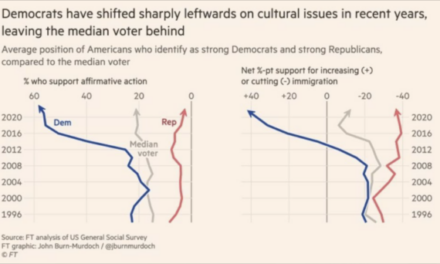We support our Publishers and Content Creators. You can view this story on their website by CLICKING HERE.
The murder of United Health CEO Brian Thompson shocked most of us, but some have gone so far as to applaud it. The Wall Street Journal headlines: “Manhunt for UnitedHealthcare CEO Killer Meets Unexpected Obstacle: Sympathy for the Gunman.”
As they search for the man who assassinated a top health-insurance executive in Midtown Manhattan last week, authorities are contending with an unanticipated challenge: an outpouring of popular sympathy for the killer.
From online forums and social media to the streets of Manhattan, people have been celebrating the suspect as a quasi-folk hero who struck a blow against a detested institution—the nation’s for-profit healthcare system.
Much of the health care system is nonprofit, and there is zero evidence that it is any more acceptable to liberals.
[I]n some cases, expressions of support have crossed over into calls to stymie a police manhunt that, on Sunday, entered its fifth day with the suspect yet to be named.
On the social-media platform X, for example, several people suggested flooding the police with fake tips or dressing like the killer to confuse law enforcement. In New York’s Washington Square Park, a group held a look-alike contest on Saturday.
Meanwhile, some online sleuths who have made a habit in recent years of banding together in informal posses to try to solve crimes are withholding their services.
It seems odd, to say the least, that a murderer whose escape was so amateurish, and whose picture has been all over the press, has not yet been identified (publicly, anyway) or apprehended.
The Journal connects what I would call sympathy for the devil with Donald Trump:
To some observers, it felt like another expression of the same broad-based populist eruption that has shaken American life in recent years, delivering Donald Trump to the White House with a promise to bludgeon the nation’s institutions while also fueling the rise of Bernie Sanders and his socialist movement.
To my knowledge, all of the sympathy for Thompson’s killer is coming from the left, not the right. And it would require a perverse reading of anything Donald Trump has said or done to connect him with assassinations of businessmen.
In the present moment, there are two entirely distinct versions of populism. Pre-Ronald Reagan, conservative populism was viewed as a fringe phenomenon, if not an oxymoron. Reagan was the father of modern conservative populism. In the Trump era, conservative populism has grown as a political force. It generally refers to the effort, as manifested in the 2024 election, to take political power back from the elites who have progressively seized it, and return it to the people. To say that Trump and his fellow conservatives have criticized various institutions is a far cry from charging them with condoning the murder of leaders of those institutions.
On the other hand, populism on the left has grown vastly more sinister since the days of, say, William Jennings Bryan. What passes for left-wing populism is now an incoherent blend of nihilism and socialism. It is fueled by hate, and it is appalling but not surprising that in dark corners of the internet and social media, leftists are approving and even cheering on what they see as a politically-motivated murder.
So if reporters and commentators are going to cover the apparent outburst of pro-murder sentiment that has followed Brian Thompson’s killing, they should leave us conservatives out of it.

 Conservative
Conservative  Search
Search Trending
Trending Current News
Current News 



